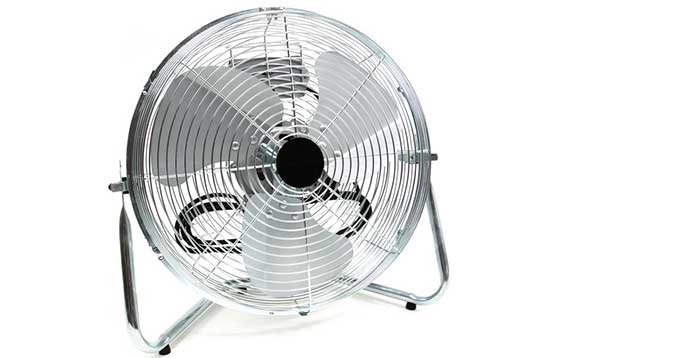Why Can’t I Sleep When It’s Too Quiet?
Disclosure: We may get commissions for purchases made through links in this post.
Sound can have both a positive and negative impact on our sleep, usually depending on the individual. Generally, it is very common for most of us to have trouble sleeping when it’s noisy. Not only can noise disrupt our sleep quality, but it can also leave us feeling unrested and cranky the next day.
Why can’t I sleep when it’s too quiet? The quietness of the night and the dark void of nothingness is sometimes a distraction to certain individuals from falling asleep. When it’s really quiet, our minds tend to wander and become more active.
Ironically, there are others out there who despise silence as it can be their main cause of not being able to sleep properly.
It might sound unusual for someone to struggle to fall asleep because it’s too quiet. But, whether it’s normal or not, this is, unfortunately, the case for some people and it should be taken just as seriously.

Why Can’t I Sleep When It’s Too Quiet?
For these unique individuals, there are two main reasons why they might struggle to sleep during silence. These reasons are emotional noises and environmental noises.
Emotional Noises
Sometimes, the kind of noise we hear does not come from our environment, but from emotional or mental noises. Often, our personal worries or long To-Do list are what keeps us awake. These are personal noises that many of us have and I’m sure we’ve all experienced on some nights. It could be that you are anxious about your upcoming final exam or your new job interview. Whatever it is, a quiet night is a perfect environment for these bothering thoughts to begin creeping in.
These thoughts are usually a result of over-thinking, anxiety, or stress from during the day. If we sense no activity happening around us or if it seems too quiet, then it can often bring about these frustrating thoughts that can keep us awake until late in the night.
Environmental Noises
Another reason for not being able to sleep when it’s too quiet is that too much silence could make you easily distracted that even the slightest noise or sound can prevent you from falling asleep. Our ears actually adjust to our surroundings, so it is true that silence can make you become more conscious of abrupt sounds around you. This is because any inconsistency of sound in a very quiet room can become much more evident and clearer.
Think of the time when you were having a serene and peaceful moment and about to fall asleep, then all of a sudden hear a cricket chirping from a distance. The sound might have been far, but for you, it was loud enough to call your attention and cover your ears with a pillow.
In some serious cases, the reason for not being able to sleep during quiet times is because of both emotional and environmental issues. The combining of these reasons can mean that consulting a specialist or a qualified professional is advised. At times, some emotions or thoughts that constantly haunt us is a very serious mental matter to address that not anyone can deal with alone. Either way, diagnosing what stops you from sleeping is a step towards restoring your “normal” self.
What is White Noise and is This the Solution to Having Better Sleep?
Good sleep has long been known to bring many benefits to the body and our mental health. Aside from feeling rejuvenated the next morning and being ready to face a new day, it can also keep our heart healthy and help reduce the risk of depression and stress.
However, obtaining a good night’s sleep can become challenging, especially as we grow older. Fortunately, there are a few tricks to solve this growing concern, whether or not you need silence to sleep.
Defining White Noise
Many sleep experts recommend a sound conditioner known as white noise. The term “white” is to describe the form of noise used to connect it with the way white light works. Just like how white light is all colors or color frequencies combined together, white noise is also a combination of all the different sound frequencies our ear can hear.
But, this does not mean that every possible sound is put together. White noise refers to the frequency or signal created when the different audible sound frequencies that the brain can perceive are combined at the same level. To make it simpler, just think of it as all 20 thousand tones playing at the same time. It is steady and not one sound will stand out to distract you.
How does it work?
Since white noise consists of all the sound frequencies, it’s often used to mask or drown out other sounds that could be disruptive to your sleep. For example, if you are studying and you hear two people talking outside, your brain would pick out one voice, making it hard for you to focus on your study. If four people are talking simultaneously, it would still be possible for your brain to pick out at least one voice.
The case would be different, though, if a thousand people were talking at the same time. There would be no way your brain could identify one voice. So, the sound created by the 1000 individuals talking all at once is like white noise. In your brain, it will sound like a blurred roar. The effect of white noise is similar. Because you hear many different tones simultaneously, it will blur into a “shushing” or “hissing” sound. This is also the reason why the unique sounds of nature, such as the ocean, the wind, rain, or waterfalls, are considered white noise. They create different tones that can mask unwanted and disruptive noises.
How Can White Noise Help Me Sleep Better?
People who have sleep problems when it’s too quiet tend to focus more solely on small disturbing noises or thoughts that keep them awake. For them, it is difficult to take their mind of that certain sound or thought. If absolute silence is too troublesome that dozing off seems like an elusive dream, white noise is a great solution to drown away those frustrating disturbances.
Contrary to how it sounds, white noise is not disruptive. Our brain is always processing sound even while we’re asleep, so sometimes having noise in the background, such as white noise, is a good way to prevent our brain from thinking too much to have a good night’s rest. By drowning the sounds out that interrupt your sleep, you can protect your tranquil slumber and make it easier for you to fall asleep.
A variety of white noise machines are available on Amazon, such as the Holmes Blizzard Rotating (view on Amazon) that comes with a remote control, three speed settings, breeze mode, and more.
How Can I Sleep Better During Quiet Times?

While some would wish for a quiet night to rest well, others could not handle too much silence. If your quiet room does not help you at night, here are some other strategies that could be your ticket to a restful sleep:
- Turn the fan on to block out the silence – If you’re tossing and turning too much during the night from all the annoying quietness, turning on the fan is a great idea. The consistent spinning sound in the background can be very calming and comforting to some people. The fan can also keep you snuggled up in your warm blanket due to its cooling effect.
- Listen to relaxing music – Since music can affect our brain in many different ways (most of them being positive), it makes sense that listening to it could help us sleep. Direct music to our ears can dull jarring sounds like sirens, slamming doors, and car alarms that might disrupt our sleep. Several studies also support that music can help us fall asleep better from feeling relaxed by listening to our favorite tunes.
- Choose the right mattress – Although it may seem like a minor concern, having the right bedding can make or break your overall sleeping experience. Many companies have realized the need and desire for a rejuvenating sleep, which is why there is a wide spectrum of mattresses (view on Amazon) available on the market. Latex, memory foam, king, and queen are just some of the many comfortable options to choose from.
To go further, there are also “smart” mattresses equipped with unique technology to monitor your heart rate, breathing patterns, and other bodily functions. You will surely never run out of options, so make sure that you pick the right mattress suitable for your needs. Whether you hate noise or detest silence, selecting the right mattress can make a significant difference in having a sound rest.
Conclusion – Why Can’t I Sleep When It’s Too Quiet?
It’s common, regardless of the reason, to sometimes not get enough sleep or have trouble sleeping. It may not be a big problem if it happens once or twice, but if it has been a persistent issue that affects your quality of sleep and eventually, your daily life, then you might want to seek for solutions or help.
Aim to first control your thoughts or to convince your brain that you can sleep. There really is a proven aspect to the “mind over matter” phrase that you can confidently apply for assistance. Making your bedroom into a peaceful haven will also be a worthwhile addition.
Getting a good night’s sleep each day is essential to a healthy lifestyle and is vital for everyone. Without it, we won’t feel and perform 100%. Therefore, try using some of these tips if you ever find yourself struggling to sleep whenever it starts to get suspiciously quiet.






